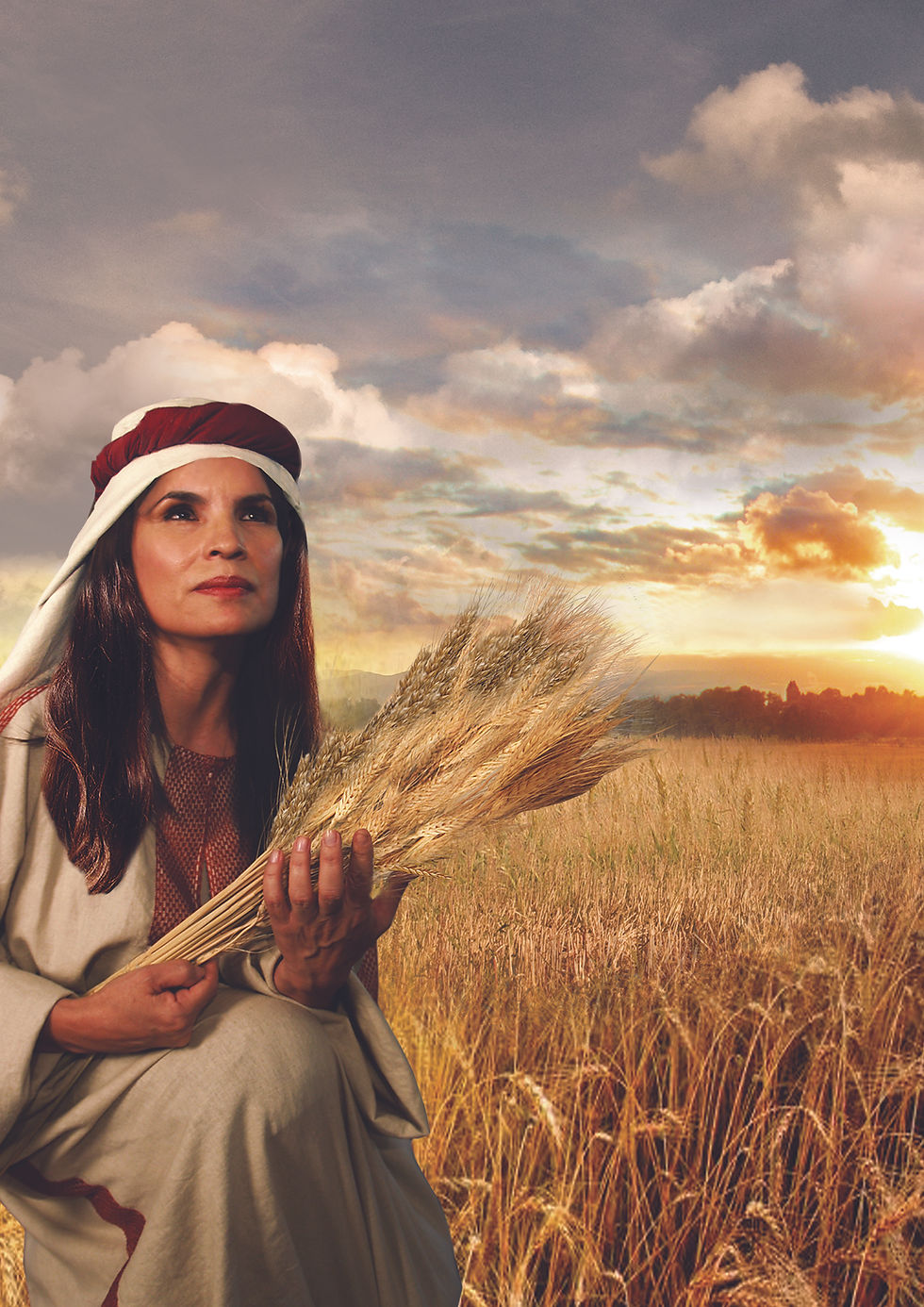The Scroll of Ruth
- Sharon Sanders
- Feb 22, 2023
- 3 min read
Updated: Mar 28, 2023
Walk about Zion, go around her, count her towers, consider well her ramparts, view her citadels, that you may tell of them to the next generation.
For this God is our God for ever and ever; He will be our guide even to the end.
Psalm 48:12-14
The Scroll of Ruth in Jewish Scripture symbolizes the relationship between Israel and the church through a moving romance about God's love and redemption.
The Scroll of Ruth in the Jewish Scripture provides a clear allegory of the relationship between Israel and the church. An extraordinary gentile woman filled with kindness and mercy toward an Israelite woman is among the Bible's many symbolic images, but none are as straightforward or as moving as this story—a romance about God's love.
This historical writing begins "when the judges ruled." There was a famine in Bethlehem Judah (1:1). Neomi's husband, Elimelech, and their two sons passed away while living in Moab. With no one to provide, Neomi urged her Moabite daughters-in-law to remain in Moab and return to their families as she would return to hers. However, Ruth refused to leave Neomi's side and followed the heart of God to a divine encounter. The words we hear in wedding ceremonies originated with a gentile's devotion to a bereaved Jewess.
"Wherever you go, I will go; And wherever you lodge, I will lodge; your people shall be my people, And your God, my God" (Ruth 1:16).

Once in Beit-Lechem (House of Bread; modern-day Bethlehem), Ruth followed her mother-in-law's advice to glean in Boaz's fields to gather food for the winter. Ruth's actions captured Boaz, who rewarded her devotion to his relative: "…do not go to glean in another field, nor go from here…It has fully been shown me, all that you have done unto your mother-in-law since the death of your husband: and how you left your father and mother…and have come unto a people you did not know. The LORD repay your work, and a full reward be given you of the LORD God of Israel, under whose wings you have come to trust" (2:8-12). Ruth affectionately responds to Boaz and humbly presents herself to him at the threshing floor (3:2-4). Feelings for each other were mutual, but a closer relative had to approve by rejecting to bring up children for Naomi's offspring.
Even today, when a Jew marries a woman, he throws the skirt or end of his tallith (prayer shawl) over her to signify that he has taken her under his protection. Since the 14th century, it has been traditional for a Rabbi to preside over a ceremony under a huppah, which symbolizes the couple's future home. It is central to a Jewish wedding to this day.
The Lord will be our Huppah as we respond to His love and willingly submit to His protection and guidance. We who follow Yeshua and love Israel have acknowledged that we have no other god but the One True God of Israel, the Holy and Righteous One, the God of Glory, and Jerusalem. Therefore, it is as if his Wings are spread over us in a marriage covenant (Psalm 91).
Naomi's friends rejoiced, "Blessed be the LORD, which hath not left thee this day without a kinsman, that his name may be famous in Israel, and he shall be unto thee a restorer of thy life, and a nourisher of thine old age: for thy daughter in law, which loveth thee, which is better to thee than seven sons, hath born him And Naomi took the child, and laid it in her bosom, and became nurse unto it…her neighbors gave it a name, saying, there is a son born to Naomi; they called his name Obed: he is the father of Jesse, the father of David" (Ruth 4:14-17 KJV).
Ruth displayed the characteristics of a faithful bride and brought forth children unto Neomi. Ruth and Boaz's story is one of redemption and new beginnings. Through their union, they overcame the hardships and difficulties of the past. The Lord is purifying the wedding garment of the True Bride. Much of Christianity, like Orpah, turned away from Naomi (Israel) and retained doctrines and dogmas entirely disconnected from the Jewish people. By reconnecting to the missing link in their faith, we can partake of many spiritual blessings and rich teachings that come with understanding our Hebraic roots. Naomi (Israel) and Ruth (the believers from the nations who are continuing to stand with Israel) will have the light on their paths, rain on their fields, and protection and security from harm and danger. With Ruth, we say, "Thy People Shall Be My People."

A repository of Biblical gleanings and perspectives from Zion
A teaching ministry of Christian Friends of Israel




Comments